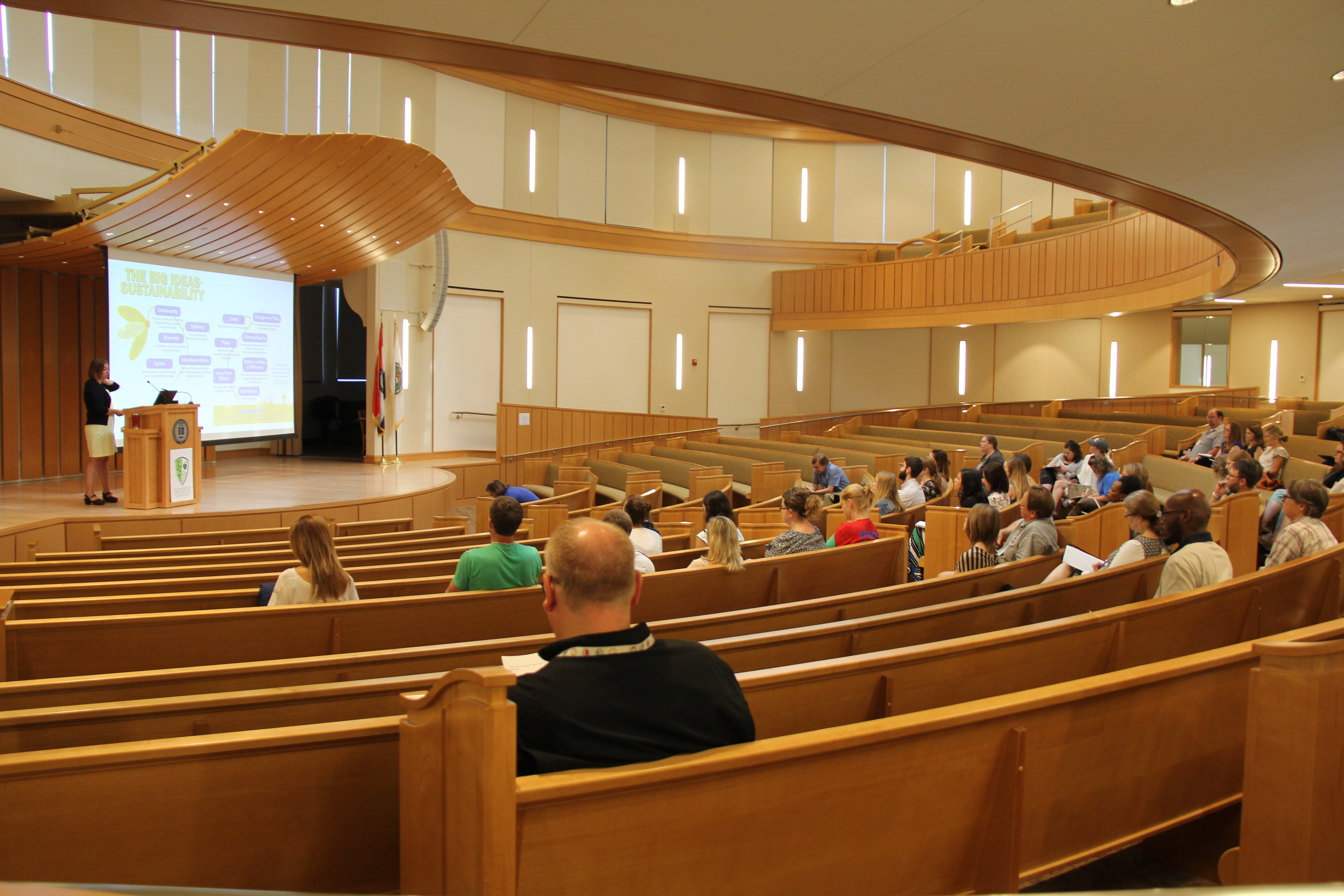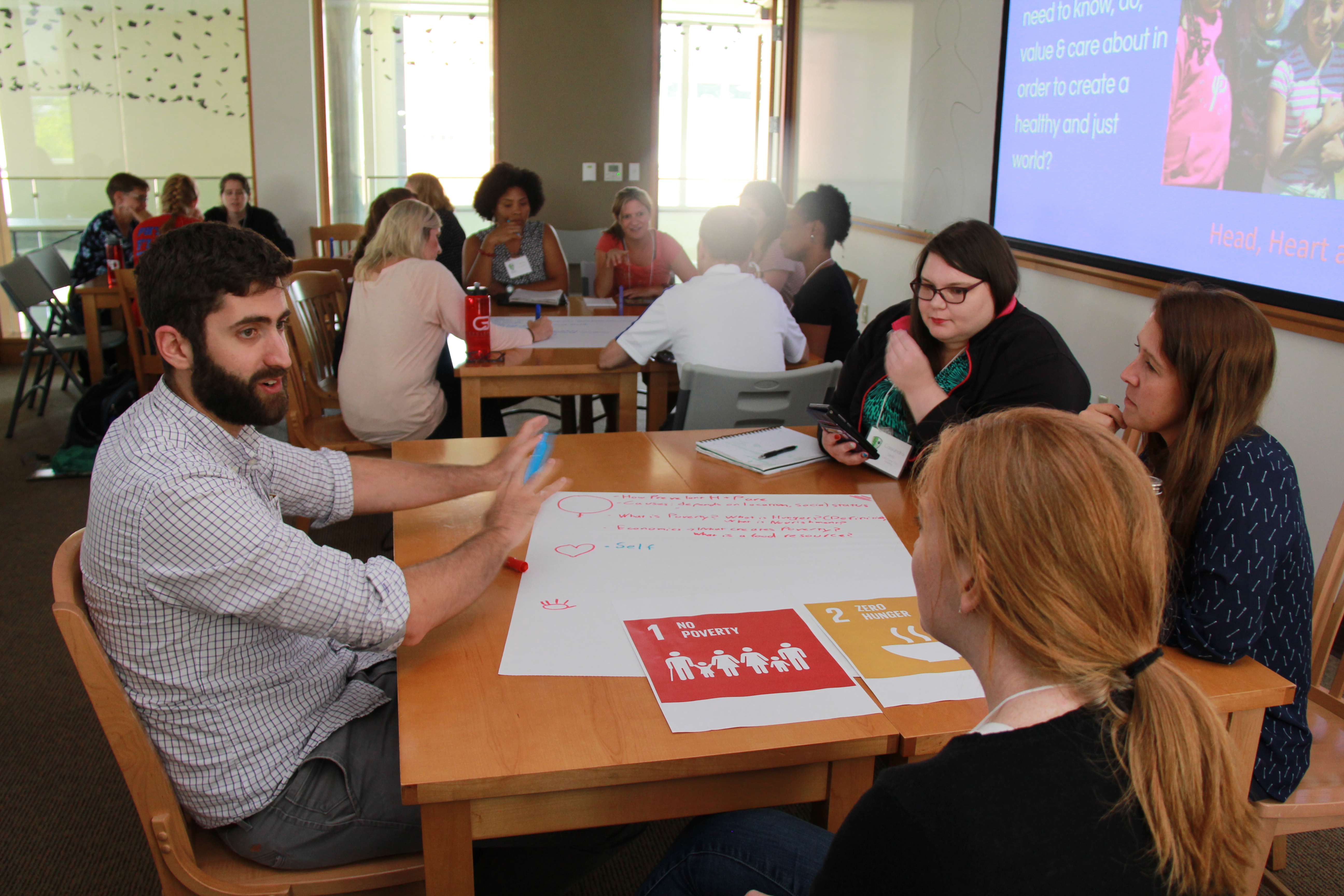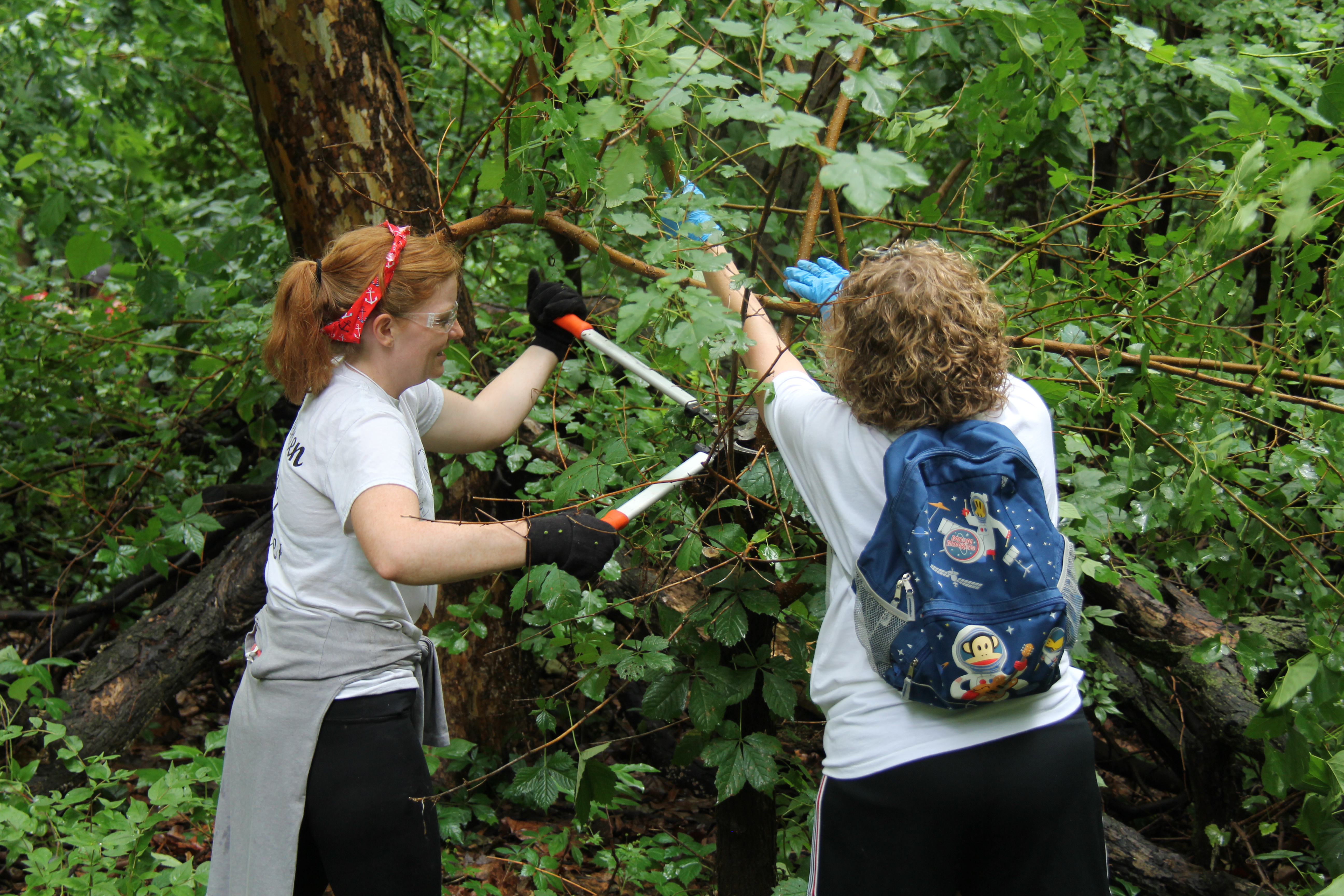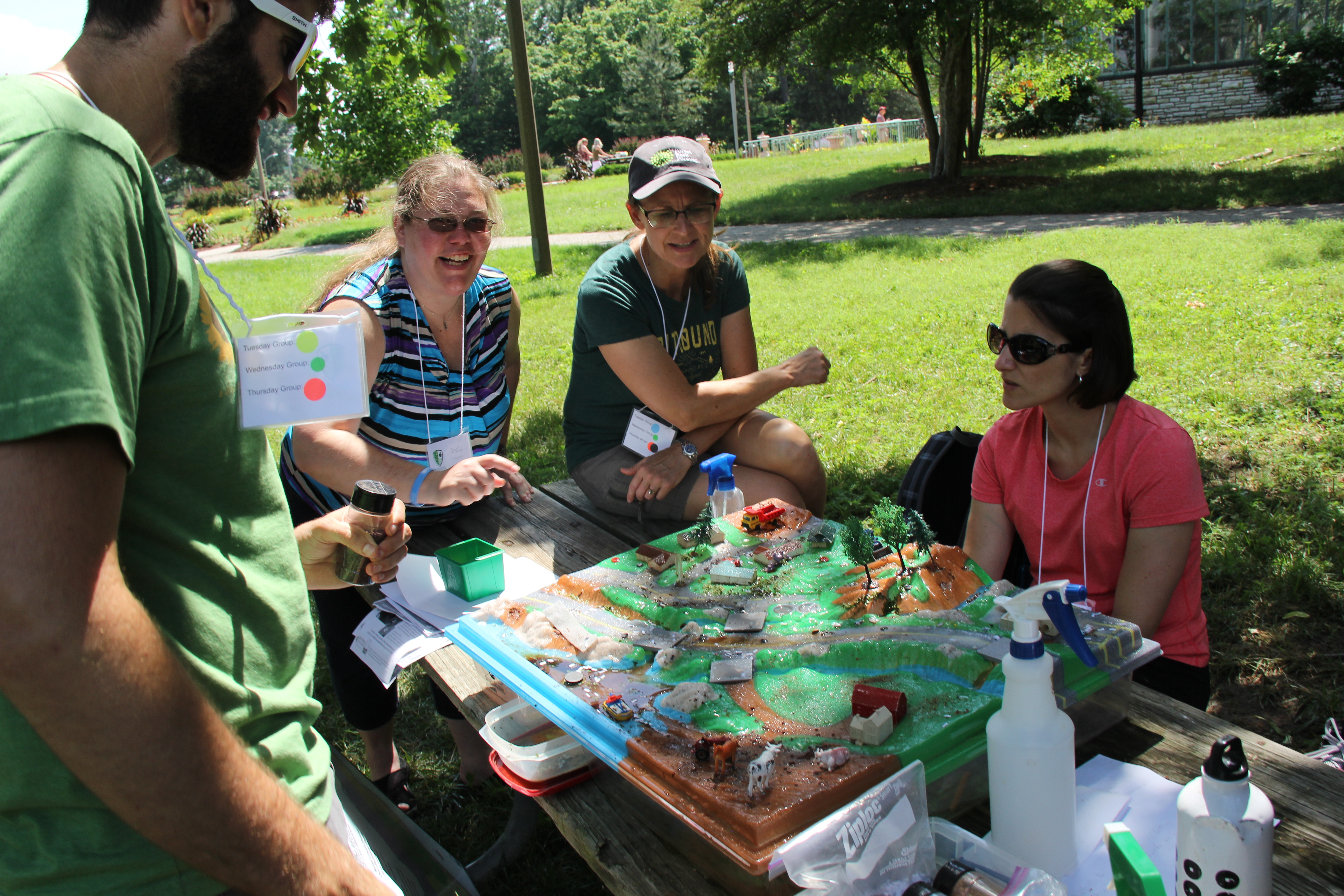Each June educators from around the St. Louis Metro area and beyond gather to discover new ways to teach for a sustainable future. This year’s 2018 Sustainability Institute for Educators (SIE) was held on June 19-21 and it was a learning adventure unlike any other for sixty educators. While the Institute always focuses on principles of Education for Sustainability practices, every year features a different, unique theme. This year’s theme focused on incorporating sustainability principles throughout curriculum.

The Institute opened on Tuesday, June 19 and focused on building awareness with a brief introduction to the purpose and topic by the 2018 Keynote Speaker —Jen Cirillo, Director of Professional Development at Shelburne Farms. Cirillo shared Shelburne Farms’ philosophy and approach to sustainability education and unveiled the twelve big ideas of sustainability. These ideas helped educators ground themselves in what the value and purpose of education for sustainability is truly all about. Later, Cirillo led educators’ in a work session that dove into the head, hand, and heart of what it means to be a sustainable student. After lunch, featured speaker Bob Coulter, Director of Litzsinger Road Ecology Center, led the educators on a journey of discovery to better understand place-based education and how this tool can help enhance the understanding of sustainability in the classroom. To round out the day, the Institute wrapped up by diving into the U.N. Goals for Sustainable Development. How can we use these goals to drive the lessons we teach in schools? How can we introduce students of all ages to these very real, very complex goals?

Continuing with the Institute, day two focused on the principles of responsibility and our educators found themselves immersed in one of the great spaces of the St. Louis area – Forest Park. Rich with nature, conservation, and community this park was the perfect place for us to spend the day diving in to what it means to plan a service learning project, and how to successfully blend sustainability education with outdoor learning environments. In the morning, our group was joined by Forest Park naturalists who led teams on an invasive species removal project of the Kennedy Forest. Participants suited up with outdoor wear, loppers, dobbers (containing pesticide), and gloves and headed out to the thick of the forest where they bravely battled poison ivy to remove invasive species such as bush honeysuckle and black locust. Educators were challenged to think about how to use outdoor resources such as Forest Park in their curriculum? How can they build sense of responsibility and stewardship through service learning? How can we teach sustainability outside of science?

The third and final day of the Institute focused on pulling everything together to take action and make a change in their approach to teaching. One teacher reflected during this time on the importance of change, and participating in the Institute by saying “What our world needs is more peacemakers and leaders.” If you think you're too small to make a difference, try sleeping with a mosquito" (David Orr). Change begins with a thought, can be small, begin in the community, family, environment and branches outwards.” During the morning, the group broke out into three different sessions that provided a unique tool for educator’s to take back and build/alter their curriculum around to better include a sustainability focus. These sessions helped demonstrate how to weave sustainability into the curriculum, not writing new lessons. One teacher noted “It's not about writing new curriculum; it's about using what you already have and uncovering how sustainability fits with it.” SIE participants also had the opportunity to attend a resource fair where they obtained the tools, resources, and information they needed to implement sustainability into their own curriculum. Webster University, the St. Louis Zoo, and the Madison Country Green Schools Program were just a few of the many organizations that attended the resource fair. After the fair, featured speaker Lacy Cagle, Director of Learning Northwest Earth Institute, led the information session, Uncovering Sustainability in Your Curriculum and encouraged others to share ideas of how they will bring sustainability to their school. Participants learned a lot and enjoyed their time at the three day institute. One attendee shared, “I am very inspired by my time at the institute, the people I met, and the presentations and workshops. I will definitely recommend SIE to the educators I know.” The hosts and founders of the Sustainability Institute for Educators are so grateful for all the students and educators that attended our event and helped make it a success!

Looking to the future, the focus of next year’s Institute will examine how technology can be used to help connect students, schools, and teachers to the world around us. The 9th annual Sustainability Institute for Educators will be held June 18-20, 2019. For more information or to learn more visit www.webster.edu/sie.